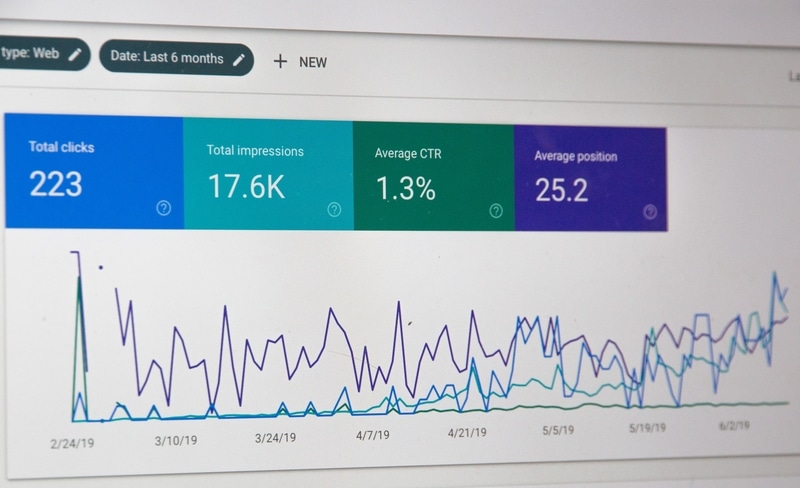Technical SEO Tip 3: URL Structure Optimization
Importance of clean and descriptive URLs for search engines and users
When it comes to optimizing your law firm website for search engines, one crucial aspect that often gets overlooked is the URL structure. However, having clean and descriptive URLs can significantly impact your website’s visibility in search results. Not only do search engines prefer URLs that are easy to understand, but users also find them more trustworthy and user-friendly.
Clean URLs are those that contain relevant keywords related to the content of the page. For instance, if you have a blog post about “Common Legal Pitfalls,” a clean URL would look something like: www.yourlawfirm.com/common-legal-pitfalls.
This kind of URL provides both search engines and users with a clear understanding of what they can expect when they click on the link. On the other hand, messy or cryptic URLs like www.yourlawfirm.com/1234?=articleid can confuse both search engines and users.
They offer no indication of what the page is about and may harm your website’s rankings as a result. By ensuring your URLs are clean and descriptive, you improve your chances of attracting organic traffic from search engine results pages (SERPs) and enhance overall user experience on your site.
Best practices for structuring URLs, including the use of keywords
Structuring your law firm website’s URLs correctly not only makes them more appealing to both users and search engines but also helps organize your site’s content better. Here are some best practices to consider: 1. Use relevant keywords: Incorporate targeted keywords in your URL structure whenever possible while maintaining clarity.
For example, if you specialize in personal injury cases in New York City, consider using www.yourlawfirm.com/new-york-personal-injury-lawyer as a URL for one of your service pages. 2. Keep URLs concise: Avoid excessively long URLs, as they can become visually overwhelming and difficult to remember.
Aim for simplicity and readability. 3. Use hyphens to separate words: When constructing URLs, use hyphens (-) to separate words rather than underscores or other characters.
Hyphens are more search engine-friendly and easier for users to read. 4. Remove unnecessary elements: Eliminate unnecessary parameters or session IDs from your URLs, as they don’t provide any value and can make them look messy and confusing.
Remember, the goal is to create user-friendly URLs that accurately convey what the page is about while incorporating relevant keywords naturally. By following these best practices, you’ll ensure that your law firm website’s URL structure contributes positively to its overall SEO performance.
Technical SEO Tip 4: XML Sitemap Creation and Submission
Explaining the Role of XML Sitemaps in Indexing Web Pages
When it comes to optimizing your law firm’s website for search engines, one crucial aspect that often gets overlooked is the proper utilization of XML sitemaps. An XML sitemap is essentially a file that lists all the web pages on your site, providing search engine crawlers with a roadmap to navigate and index your content more effectively.
It acts as a blueprint for search engines, ensuring that they don’t miss any important pages during their crawling process. The role of an XML sitemap is not limited to mere discoverability; it also helps search engines understand the structure and hierarchy of your website.
By including additional information like the frequency of page updates and priority levels, you can guide search engine bots towards the most relevant and essential pages. This not only enhances your website’s overall visibility but also improves its chances of ranking higher on search engine result pages (SERPs).
Steps to Create a Sitemap and Submit it to Search Engines
Creating an XML sitemap for your law firm’s website may sound intimidating at first, but it’s actually quite straightforward. Here are some steps you can follow:
Identify Your Website’s Structure: Take a close look at your website’s architecture and determine which pages should be included in the sitemap. Typically, this would encompass all main service pages, blog posts, contact page, about us section, and any other significant content.
Utilize Online Tools or Plugins: There are numerous online tools available that can generate an XML sitemap for you automatically by crawling through your website. Alternatively, if you’re using platforms like WordPress or Joomla!, there are plugins specifically designed to create sitemaps effortlessly.
Exclude Unnecessary Pages: Not all pages on your website may require inclusion in the XML sitemap. For example, pages with thin or duplicate content, login pages, or thank you pages after form submissions can be excluded.
Validate Your Sitemap: Before submitting your sitemap to search engines, it’s crucial to validate it using tools like Google Search Console. This ensures that your sitemap is error-free and complies with the required format.
Once you have a validated XML sitemap ready, it’s time to submit it to search engines. Most search engines provide webmaster tools where you can manually submit your sitemap.
For instance, Google Search Console allows you to add and verify your website and then submit the sitemap through its interface. By creating and submitting an XML sitemap for your law firm’s website, you’re giving search engine crawlers a clear roadmap of your content.
This helps them better understand and index your site, ultimately improving its visibility on search engine result pages (SERPs). So take advantage of this often overlooked technical SEO tip and give your law firm’s online presence a significant boost!
Technical SEO Tip 5: Schema Markup Implementation
Overview of schema markup and its impact on rich snippets in search results
In the vast ocean of search engine results, it’s crucial for law firms to stand out and catch the attention of potential clients. This is where schema markup comes into play. Schema markup is a structured data vocabulary that helps search engines understand the content on your website better.
By implementing schema markup, you can provide additional context to search engines about your law firm’s details, services, and other relevant information. One significant benefit of using schema markup is the opportunity to enhance your website’s appearance in search results with rich snippets.
Rich snippets are those eye-catching extras that appear alongside traditional blue links in search engine result pages (SERPs). These snippets provide users with additional information about your law firm directly on the SERP itself, making your site more enticing and increasing click-through rates.
Examples of schema markup relevant to law firms, such as local business schema
When it comes to applying schema markup for law firms, one useful type is “local business” schema. Local business schema allows you to provide specific details about your firm’s location, contact information, opening hours, and other relevant data. By implementing local business schema correctly, you increase the chances of appearing in local map packs and improve visibility for potential clients searching for legal services in their area.
Another relevant example of schema markup for law firms is “legal service.” This type allows you to highlight the areas of practice offered by your firm, such as personal injury law or family law. By specifying these practice areas using structured data, you can signal to search engines what types of cases you handle and increase the likelihood of appearing in relevant searches.
Furthermore, “review” or “rating” schemas can be utilized if your firm has received positive reviews from clients or industry experts. These schemas enable you to showcase your firm’s reputation and credibility directly in search results, giving potential clients a reason to choose you over your competitors.
Implementing schema markup may require technical knowledge or the assistance of a web developer familiar with SEO practices. However, the benefits of using schema markup for law firms are undeniable.
By providing search engines with more context about your firm and taking advantage of rich snippets, you can significantly improve your online visibility and attract valuable clients. Remember, it’s important to stay up-to-date with any changes or updates to schema markup guidelines to ensure that your implementation remains effective and compliant with search engine algorithms.
Technical SEO Tip 6: Canonicalization
Let’s dive into the world of canonical tags and their significance in preventing duplicate content issues on your law firm website. Duplicate content can be a thorny problem, causing search engines to get confused and potentially harming your search rankings. But fear not!
Canonical tags are here to save the day. So, what exactly are canonical tags?
In simple terms, they are HTML elements that tell search engines which version of a web page should be considered as the primary or canonical version. By implementing these tags correctly, you can signal to search engines which page should be indexed and ranked while avoiding any penalties for duplicate content.
Implementing Canonical Tags Correctly
Now that you understand the importance of canonical tags, let’s discuss how they can be implemented correctly in the context of your law firm website. The key here is to ensure that each page on your site has a unique URL and that all similar or identical content points back to the preferred or canonical version.
To start with, identify any pages on your website that have similar or identical content. This could include blog posts discussing similar legal topics or multiple pages providing information about specific practice areas.
Once you’ve identified these pages, decide which one should be considered as the primary version. After determining the primary page, add a canonical tag within the HTML head section of each duplicative page.
The tag should point to the URL of the preferred page, indicating its importance as the canonical version. This way, search engines will understand which page should be given priority and avoid indexing multiple versions of essentially identical content.
Remember to regularly review your website for new instances of duplicate content and adjust your canonical tags accordingly. It’s good practice to keep an eye on changes in your site structure or when adding new content to ensure proper implementation of canonical tags throughout your law firm website.
By implementing canonical tags correctly, you can steer clear of duplicate content issues and help search engines focus on indexing and ranking the most relevant version of your web pages. This will ultimately boost your visibility in search results and drive more organic traffic to your law firm’s website.
Technical SEO Tip 7: SSL Certificate Installation
Security is paramount, especially for law firms handling sensitive client information. That’s where SSL certificates come into play. An SSL (Secure Socket Layer) certificate is a digital certificate that encrypts the connection between a user’s browser and the website they are accessing.
This encryption ensures that any data exchanged, such as personal information or confidential legal matters, remains private and secure. By installing an SSL certificate on your law firm’s website, you provide an added layer of protection against potential cyber threats.
It not only safeguards your clients’ data but also enhances their trust in your firm’s professionalism and commitment to their privacy. With an SSL certificate in place, visitors to your website will see a padlock icon in their browser’s address bar, indicating that their connection is secure and encrypted.
Step-by-step guide on how to install an SSL certificate for a law firm
Now that we understand the importance of SSL certificates let’s walk through the steps to install one for your law firm:
Choose an SSL provider: There are various reputable providers available such as Let’s Encrypt or Comodo.
Select a provider based on your specific requirements and budget.
Generate a Certificate Signing Request (CSR): This involves creating a file containing important details about your firm and its domain name.
Many hosting providers offer CSR generation tools within their control panels.
Purchase or obtain an SSL certificate: Once you have generated the CSR, you can proceed to purchase an appropriate SSL certificate from your chosen provider or explore free options like Let’s Encrypt.
Verify domain ownership: The next step involves proving that you have ownership rights over the domain for which you are obtaining the certificate. Follow the verification process outlined by your chosen provider, which may involve email verification or uploading specific files to your website.
Install the SSL certificate: After successfully completing the verification process, you will receive the SSL certificate files from your provider. These files typically include a primary certificate, an intermediate certificate (sometimes referred to as a CA bundle), and a private key.
Consult your hosting provider’s documentation or support team for guidance on installing these files correctly.
Update your website settings: Once the SSL certificate is installed, make sure all internal links on your website use “https://” instead of “http://”.
Additionally, update any references to external resources such as images or scripts to use secure URLs. By following these steps and ensuring a smooth installation process, you can provide the highest level of security and trust for your law firm’s website visitors.
Advanced Technical SEO Tips for Law Firm Website Optimization
Here are five expert tips that will help you solidify your website’s performance and demonstrate your expertise:
1. Detecting Errors with Screaming Frog: Use tools like Screaming Frog to find internal website errors, such as internal 404s or 500 errors. These issues can result from URL changes without proper 301 redirects or deeper design problems. Fixing these errors not only improves user experience but also ensures smooth navigation for search engines.
2. Resource Cleanup: Improve your website’s performance by removing unnecessary resources that may slow it down. For example, consider replacing plugins that handle URL redirection with more efficient htaccess file configurations. Optimizing resource usage enhances page load times and overall site speed.
3. Monitoring Google Search Console: Regularly check Google Search Console for flags or warnings. Make sure your website doesn’t have manual actions or security issues. Proactive monitoring and addressing of these issues demonstrate your commitment to a secure and trustworthy online platform.
4. Link and Image Maintenance: Periodically review and replace broken images and non-functioning external links. Ensuring that all media elements and external references work properly enhances your website’s reliability and credibility as a trustworthy legal resource.
By mastering these advanced technical SEO tactics, you position your law firm as an authoritative and reliable online presence, attracting recognition from search engines and potential clients seeking legal expertise.
Contact us today to elevate your law firm’s online presence with top-notch SEO services tailored to your specific needs. Our expert team is ready to help you dominate search rankings and attract a steady stream of potential clients.












Recent Comments